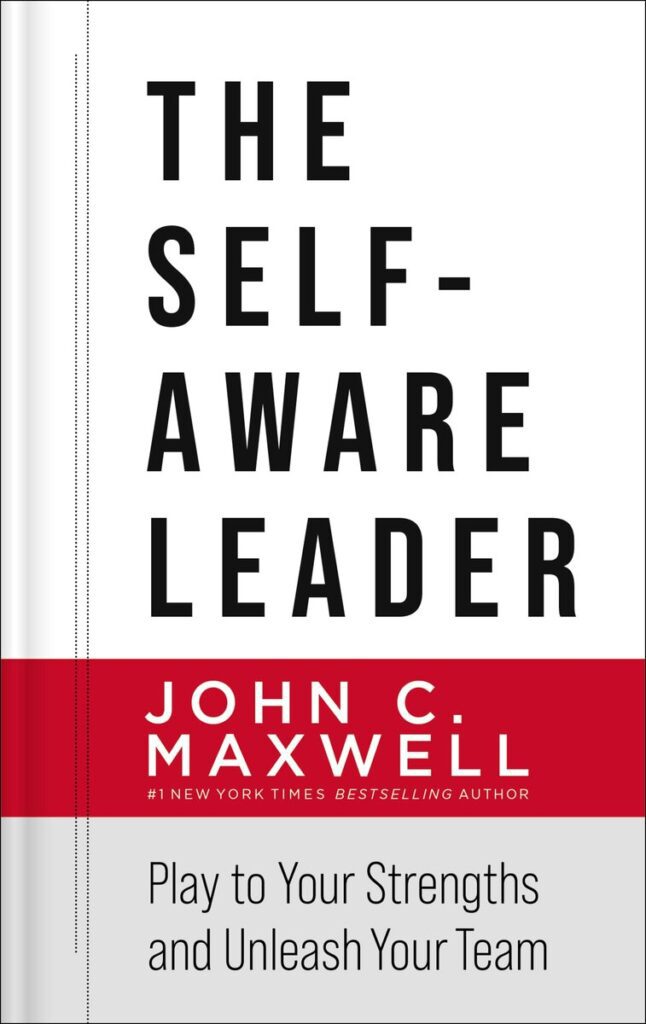In The Self-Aware Leader: Play to Your Strengths, Unleash Your Team, leadership author Dr. John C. Maxwell asserts that lack of self-awareness is the single greatest obstacle leaders face in their development, effectiveness and advancement. When leaders don’t see themselves clearly, understand their strengths & weaknesses, or recognize their negative interactions with their team, they. limit their influence & undermine their own influence.
The Toughest person to lead is always yourself:
People seldom see themselves realistically. They aren’t self-aware. Human nature seems to endow us with the ability to size up everybody in the world except ourselves.
If you don’t look at yourself realistically, you will never understand where your personal difficulties lie. You won’t recognize your strengths and weaknesses. You won’t find and correct your blind spots. And if you can’t see all these things, you won’t be able to lead yourself effectively.
Civilization is always in danger when those who have never learned to obey are given the right to command. – Bishop Fulton J. Sheen
Learn Followership
Only a leader who has followed well knows how to lead others well. Good leadership requires an understanding of the world that followers live in. Connecting with the people on your team becomes possible because you have walked in their shoes. You know what it means to be under authority and thus have a better sense of how authority should be exercised. In contrast, leaders who have never followed well or submitted to authority tend to be prideful, unrealistic, rigid, and autocratic
Arrogant leaders are rarely effective in the long run. They alienate their followers, their colleagues, and their leaders. Learn to submit to another person’s leadership and to follow well, and you will become a humbler—and more effective—leader.
Seek Accountability
People who lead themselves well know a secret: they can’t trust themselves. Good leaders know that power can be seductive, and they understand their own fallibility. To be a leader and deny this is to put yourself in danger.
Working on a weakness in your strength zone will always produce greater results than working on a strength in a weak area.
Climber vs Connectors
Climbers Think Vertical—Connectors Think Horizontal
Climbers are always acutely aware of who is ahead of them and who is behind them in the standings or on the organizational chart.
Connectors, on the other hand, are focused on moving over to where their team members are and helping them. They think more about who is on the journey with them and how they can help them. They put the good of the team ahead of their own personal gain.
Climbers Focus on Position—Connectors Focus on Relationships
Because climbers are always thinking about moving up, they are often focused on their position. However, connectors are more focused on relationships. Unlike positional people who desire to climb the ladder, relational people are more focused on building bridges.
BECOME THE BEST LEARNER IN THE ROOM
If you want to be a self-aware leader, you’ve got to be an intentional learner. If you want to become the best leader you can be, you need to become the best learner in the room.
The Learning Zones
- The Challenge Zone: “I attempt to do what I haven’t done before.”
- The Comfort Zone: “I do what I already know I can do.”
- The Coasting Zone: “I don’t even do what I’ve done before.”
As you increase your self-awareness and gain experience as a leader, you understand more and more that leadership is not about you. It’s about the team and helping them accomplish their mission. Good leaders are facilitators of success. They use their talents and influence to clear the way for their team members and help them succeed.
Self-aware leaders never pretend to be perfect, to have all the answers, or to lack weaknesses. They use whatever strengths they have to help the team; they ask others to help them in areas of weakness. Together they move forward.
All the best in your quest to get better. Don’t Settle: Live with Passion.



Comments are closed.